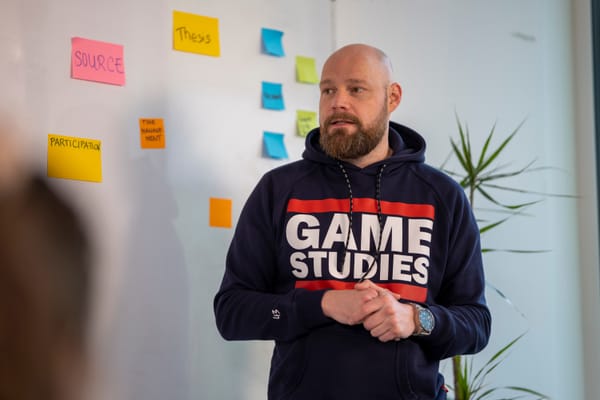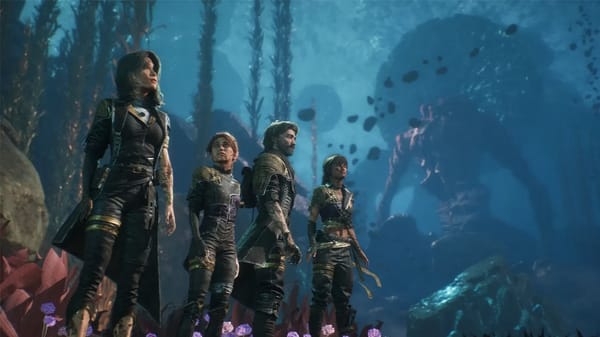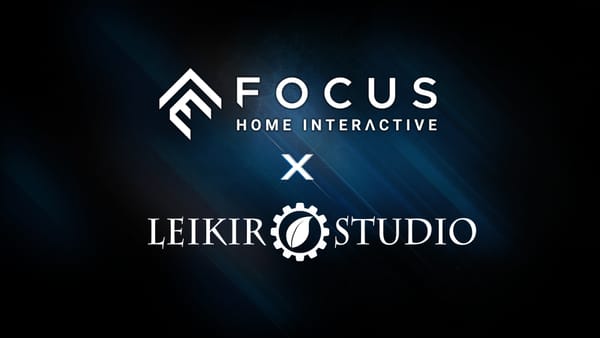Using Creative and Cross-Innovative Potential



Despite limited financial resources, Baden-Württemberg has managed to create and develop a comprehensive and strategic funding programme for the games industry through creativity and cooperation, as Dr Ellen Koban explains in the interview.
GamesMarkt: There is a lot of talk about federal funding at the moment. Why is it still important for Baden-Württemberg to provide funding for the local games industry at state level?
Ellen Koban: Due to the international competition in the digital audiovisual sector, federal and state funding is crucial for the games industry! State funding will be even more relevant, if the federal government decides to invest in larger projects — and thus mostly larger companies — in the future by increasing the minimum budgets for projects eligible for funding. This would make it even more important for the federal states to support aesthetically and narratively different, experimental and riskier projects, which often originate in the indie games scene. Furthermore, as a state funding organisation, we also have another task and a regional interest: namely, to retain and expand the very well-trained, creative talent in Baden-Württemberg, the established games studios here and the artistic and economic quality of our games industry in Baden-Württemberg. In order to promote young talent, we at MFG have already initiated a statewide university network and talent meet-up in the field of games and games-related courses of study, to create interdisciplinary exchange and cooperative projects between universities and students, for example at the interfaces of game development, game art, virtual worlds, game design, sound design, etc. In the coming years, we want to expand this interdisciplinary and supra-regional cooperation from education to company start-ups and project development on an international scale, and this year we are offering the first pitch trainings and international contact opportunities with national and international publishers.
What is your key to success for your initiatives?
Our industry-specific offer can only be successful with a good infrastructure, which in addition to good funding conditions always includes good local conditions in general, which we have here in Baden-Württemberg thanks to a strong ecosystem and the commitment of all players and institutions in the games scene as well as other state-supported key drivers that render Baden-Württemberg a hub for innovation, amongst them the Cyber Valley, Europe‘s largest center for excellence in AI and modern robotics, the Innovationspark Künstliche Intelligenz (IPAI) Heilbronn, and the KI Allianz BW.
What companies and projects are you aiming to support with your initiative Games BW and why?
With our "Guidelines for the Promotion of Games in Baden-Württemberg", or "Games BW" for short, we can and want to promote the development of high-quality, culturally and educationally significant digital games and innovative, interactive media projects with gaming elements. In the future, but only once the new funding guidelines have been approved by the EU, we will also be able to fund innovative games, provided that the applicant company is still primarily active in the games industry. Our primary goal is to support "good games", i.e. conceptually, aesthetically and technically convincing, marketable games that meet our guidelines — whether from indie game studios or the "big players" in the industry. In Baden-Württemberg, we have an enormously diverse and well-trained games scene in the fields of game art, game design, game technology, interactive media, animation and extended realities, thanks to games-specific training centres — e.g. in Ludwigsburg, Stuttgart, Karlsruhe, Offenburg, Freiburg, Furtwangen, Heidelberg and Tübingen. We want to support this diversity and quality and therefore strengthen the innovative power of Baden-Württemberg both nationally and internationally through the production of games as the leading economic and cultural media and technologies of our time.
"In Baden-Württemberg, we have an enormously diverse and well-trained scene in the fields of game art, game design, game technology, interactive media, animation and extended realities." - Dr Ellen Koban
At first glance, the funding models of the German federal states are very similar, but they do differ when examined in more detail. What characterises the Games BW funding programme?
Looking only at the funding guidelines, there are large overlaps and gradual differences in the types of funding and funding quotas of the state's programmes. Nevertheless, the funding volumes of the individual federal states naturally differ greatly from one another. In our "Games Germany" network, we have established a regular and productive dialogue about this and also discuss the advantages and disadvantages of, for example, focusing on different concepts, prototypes and/or production funding methods, as well as age classification ratings. For example, in our new guidelines, which will apply from mid-2025 after notification by the EU, we want to convert prototype funding into pure grant funding, for example, as other countries are already doing. In the future, we also want to raise awareness of ecologically and socially sustainable production methods and introduce an orientation guide similar to Gamecity Hamburg‘s diversity checklist.
And how does it differ from the models of other federal states?
In my opinion the states differ less in their respective funding guidelines than in their financial and contextual opportunities to create a good ecosystem. With Games BW, we have created an excellent starting point in Baden-Württemberg with which we want to strengthen the games industry‘s next generation and the founding of games studios, as well as bringing them even closer together with established games companies and the games and creative community throughout the state. We have therefore established Games BW as a sustainable funding strategy. In addition to financial support, this includes the aforementioned statewide university network for games and games-related degree programmes, the Developer Boost start-up programme and the Open Stage Games BW meet-ups we organise regulary as well as the annual conference Gamestate Festival BW. Through our targeted funding and support in the areas of higher education and start-ups, as well as through numerous pitching events, we maintain strong connections with both young and experienced industry players. This allows us to constantly adjust our programmes to meet demand, within the limits of our financial and human resources. After all, we are a small team, and we only have a limited budget for Games BW.
How closely are you working with the industry to develop and advance local conditions and the games industry in general?
Due to the aforementioned measures, we keep close connections to the local games industry. Additionally, we work together with game Baden-Württemberg, the regional representative of game — the German Games Industry Association. Game Baden-Württemberg is also a long-standing partner of Open Stages Games BW and curates and coordinates the Gamestate Festival BW together with us. This enables us to develop event concepts and the corresponding content, information and impulses from and for the industry, so that we are always in touch with the latest trends. Another important source of inspiration for our programmes is our Games BW jury. The jury members themselves come from the games industry and often have international market experience. This plays a key role in the selection of projects as well as in the further development of our programmes within the Games BW funding strategy. The cooperation with game Baden-Württemberg, the other partners and our Games BW jury is not only productive, but also a very fun.
If we look ahead to the future: What does Games BW need in order to be able to support the games industry in Baden-Württemberg even better in the future?
The necessary financial resources and a stable, predictable budget situation at federal and state level are a basic prerequisite for the sustainable support of the games industry in Baden-Württemberg and the further development of our Games BW funding strategy. Of course, we could use a further increase in financial support for the Games BW funding to develop outstanding games and future technologies, simply because of inflation and because of the national and international competition in this future-orientated market. However, we are also aware of the very tight financial situation at the moment due to the enormous economic, social and ecological crises.
How do you see the role of games and game technologies in the future development of society and what potential do you see for Baden-Württemberg?
In light of the societal challenges I just mentioned, I believe that the relevance and effectiveness of (digital) games are becoming increasingly important, and the same goes for the relevance of games and game technologies both in a growing entertainment market and in the digital industries, and even more so in the areas of education, for example educational games, media literacy, mediation, cultural education, for the promotion of democracy and health through critical and effective games. Games are much more than entertainment. Playing games is one of the oldest cultural techniques and games are the future media and, future technologies of our time. The state government's vision is to make Baden-Württemberg the leading digital region in Europe. This includes games. This requires creative talent. Baden-Württemberg has the potential to become one of the most attractive regions for the games industry and the most innovative industrial location in Germany and Europe — if it uses its creative and cross-innovative potential.
…has been Head of the Cultural and Creative Industries Unit at MFG Baden-Württemberg since October 2022. She moved to MFG from the City of Heidelberg, where she was previously Co-Head of the Cultural and Creative Industries Unit. She also holds a doctorate in theatre and cultural studies and has been a jury member in various state and national competitions for the industry.








